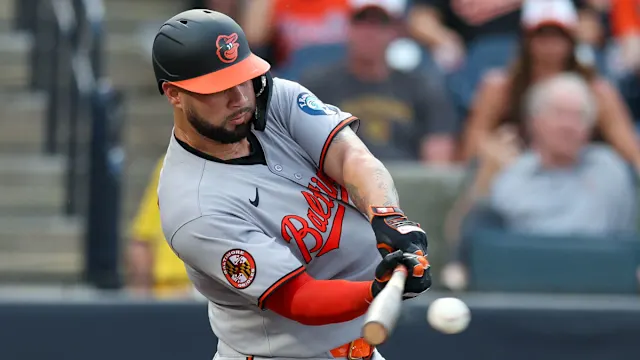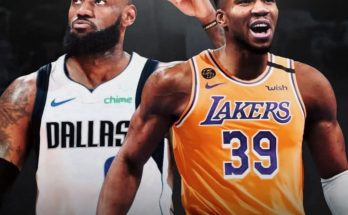Breaking News: Orioles Make Urgent Move, Trade for Alex Jackson After Another Catcher Goes Down
The Baltimore Orioles had little choice but to act, and they didn’t waste time. After watching Gary Sánchez become the fourth catcher on their roster to hit the injured list, the Orioles made a swift and calculated move, acquiring Alex Jackson from the New York Yankees in a trade that speaks volumes about their current state of desperation and strategic urgency. This isn’t a blockbuster move by any means, but it is a defining one in the scope of roster survival. As the season continues to take its toll on bodies behind the plate, Baltimore had to fortify a position that has quickly gone from a strength to a serious vulnerability.
Sánchez’s placement on the IL sent shockwaves through an already depleted catching group. James McCann, Adley Rutschman’s reliable backup, was already sidelined. Then came setbacks for David Bañuelos and Samuel Basallo, and suddenly the Orioles were looking at a roster that simply didn’t have a healthy, experienced backstop ready to go behind the plate. There’s no doubt that Rutschman remains the anchor, the All-Star, the face of the catching corps—but even he needs rest. Every MLB team needs depth behind the plate, and without it, defensive game plans collapse, pitcher rhythm gets disrupted, and teams simply become vulnerable to losing winnable games. That’s not something Baltimore, a team with playoff ambitions and legitimate American League aspirations, can afford right now.
Enter Alex Jackson. Once a top prospect in the Braves organization, Jackson has spent the last few years bouncing between franchises and minor league assignments, but his power potential and strong arm have always kept him on MLB radars. While he may not carry the fanfare of an Adley Rutschman or even the veteran polish of Sánchez, Jackson brings something the Orioles desperately need at this moment: availability. In a league where “next man up” is more than a motto—it’s a lifeline—Jackson is now being asked to step in and provide much-needed innings behind the plate.
His 2024 numbers haven’t exactly lit up the stat sheet. In Triple-A, Jackson has shown flashes of pop at the plate, occasionally crushing mistake pitches and throwing out runners with confidence. But inconsistency has kept him from locking down a permanent role with any major league club. Still, Baltimore isn’t necessarily looking for a long-term solution. They need a bandage on a gaping wound. They need someone who can put on the gear, squat for nine innings, and offer some semblance of stability while the rest of their catching corps works its way back to health.
The trade itself was straightforward. The Yankees, loaded with organizational depth at catcher and more focused on developing their in-house talent, had little incentive to keep Jackson buried in their Triple-A roster. The Orioles, meanwhile, were in urgent need. The match was natural. And so, without fanfare or complex conditions, the deal was done.
For Jackson, this marks yet another chapter in a career that has never quite followed the arc many envisioned when he was drafted in the first round in 2014. Back then, scouts raved about his bat speed and raw power. He was expected to be a franchise cornerstone. But baseball has a way of humbling even its brightest stars, and Jackson has instead become the kind of player whose value lies in his ability to be ready, to adapt, and to serve when called upon.
Now he’ll be donning an Orioles uniform, learning a new pitching staff, and trying to establish chemistry in a clubhouse that’s already deep in the thick of a division race. It won’t be easy. Baltimore is chasing October baseball, and every inning matters. A dropped ball here, a missed block there, and the margins can disappear in the blink of an eye. Jackson will be asked to do more than just catch. He’ll need to lead. He’ll need to settle pitchers who’ve grown accustomed to working with different voices and targets behind the plate. And he’ll need to hit, at least occasionally, because even backup catchers can’t be automatic outs in the American League East.
It’s also a reminder of how fragile even the best-laid plans can be in baseball. The Orioles thought they had depth at catcher. Rutschman was the star. McCann was the veteran presence. Sánchez was the seasoned plug-in with power. Bañuelos and Basallo were the up-and-comers waiting in the wings. On paper, it looked solid—more than solid, it looked like a luxury. But paper doesn’t win games. Paper doesn’t survive foul tips, broken fingers, hamstring strains, or concussions. And just like that, the Orioles went from having an embarrassment of riches behind the plate to making a midseason deal just to keep the position functional.
This move might not register as a major headline across the national baseball media, but in Baltimore, it matters. It’s a sign that the front office is paying attention, staying aggressive, and refusing to let unforeseen circumstances derail a promising season. General Manager Mike Elias has built a reputation for making timely, smart, and often understated moves that shore up the roster at critical junctures. This is another example of that philosophy in action.
For Orioles fans, it’s worth watching how Jackson is utilized. Will he serve as the direct backup to Rutschman? Will he split time depending on matchups? Or will he act as insurance, ready to go in case of another unfortunate injury? Much will depend on how quickly Sánchez and others recover, but until then, Jackson will have a chance to prove that he still belongs in The Show.
His path to this opportunity has been anything but smooth. He’s battled through the minors, been traded multiple times, dealt with performance struggles, and watched younger catchers leapfrog him on depth charts. But now, with the Orioles’ season on the line and catching depth at a crisis point, he gets another shot. And sometimes, that’s all a player needs.
Baseball is filled with stories of guys who got the call when no one expected it—guys who stepped in due to injury, suspension, or roster chaos and ended up carving out careers from that one moment. Alex Jackson now finds himself in that exact scenario. This isn’t just a temporary stopgap for him—it could be the opportunity that finally helps him establish his footing in the majors.
Meanwhile, the Orioles continue to march forward. The AL East is a brutal division. Every team is loaded with talent. Every loss feels heavier. Every roster decision matters. And so, while this trade may not light up the headlines, it could quietly shape the next stretch of Baltimore’s season in significant ways.
They didn’t go after a blockbuster bat or an ace reliever. They didn’t shake up the outfield or add bullpen flash. They went after a catcher—a necessity, a stopgap, a stabilizer. Sometimes, that’s all a team needs to stay afloat in the grueling 162-game journey. Alex Jackson is that guy now for Baltimore. And as long as he puts on the gear and gives them a chance behind the plate, he’ll have done exactly what this moment requires.



